Ihab Maharmeh
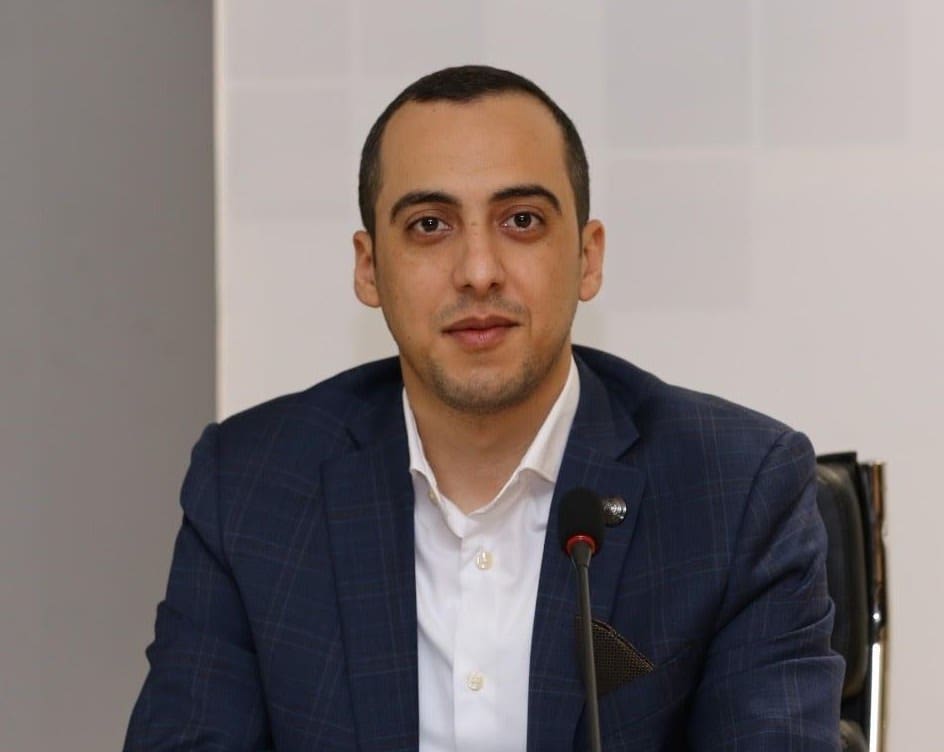
Ihab Maharmeh is a researcher at the Arab Center for Research and Policy Studies in Doha, and the editorial secretary of Siyasat Arabiya. He has worked at Birzeit University, where he earned his BA in public Administration and his MA in International Studies from the Ibrahim Abu-Lughod Center for International Studies. He also holds an MA in Public Policy and International Cooperation from the Doha Institute for Graduate Studies. He has published several research papers in peer reviewed journals on settler colonialism, forced displacement, Palestinian workers in Israel and its settlements, and everyday Palestinian resistance.
Inès Abdel Razek
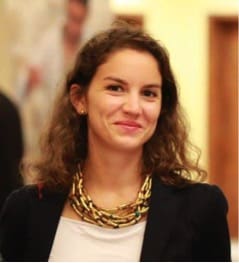
Inès Abdel Razek is the Executive Director of the Palestine Institute for Public Diplomacy (PIPD) and its digital platform Rabet, an independent Palestinian organization focusing on international mobilization and digital campaigning for Justice, Freedom and Equality. From 2019 to 2022, Inès was the Advocacy Director of the PIPD, helping to develop the political networks and international advocacy pillar of the organization. Prior to joining the PIPD, Inès held policy advisor positions in the Union for the Mediterranean in Barcelona, the UN Environment Programme in Nairobi and the Palestinian Prime Minister’s Office in Ramallah, where she advised executive leadership on international aid for development policies. Inès is also a board member of the social enterprise BuildPalestine, Advisory board member of Palestine DeepDive, and policy member at Al-Shabaka, the Palestinian Policy Network. She holds a Master’s degree in Public Affairs from Sciences-Po, Paris. Twitter: @InesAbdelrazek
Ingrid Jaradat Gassner

Ingrid Jaradat Gassner is a co-founder and former director of Badil Resource Center for Palestinian Residency and Refugee Rights (Badil). She has worked extensively in the fields of international law and advocacy, including innovative research on Palestinian refugees, the right to return, Israeli colonialism and apartheid and related third-state responsibilities. She has also coordinated research for a Palestinian civic initiative seeking to register exiled Palestinians as voters and campaign for direct PNC elections and carried out advocacy with the Civic Coalition for Palestinian Rights in Jerusalem. She currently works as an independent consultant.
Irene Calis
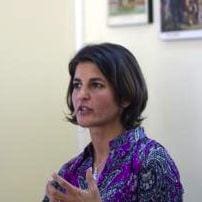
Irene Calis is a de-colonial scholar, educator, and organizer in the department of Critical Race, Gender, & Culture Studies at American University, DC, where she is also the Director of Arab World Studies. Her research and activism, grounded in the Palestinian liberation struggle, focuses on emancipatory politics from the perspective of everyday life. Her current work on emancipatory futures situates the Palestinian struggle in a wider conversation with the global South, and in particular with indigenous-settler experience and intellectual thought. Calis holds a PhD in anthropology from the London School of Economics & Political Science.
Ismail Khalidi

Al-Shabaka Policy Member Ismail Khalidi’s writing on Palestinian history, culture and politics range from plays and poetry to op-eds and commentary. He holds an MFA from NYU’s Tisch School of the Arts and authored the award-winning play Tennis in Nablus, which explores the Palestinians’ 1936-39 revolt against British Colonial rule. His work has been produced and read at theatres and Universities around the country including Atlanta’s Tony Award-winning Alliance Theatre, which premiered Tennis in Nablus, and the Culture Project, which will produce the New York premiere in 2013. Khalidi’s writing has also appeared in The Daily Beast, American Theatre Magazine, The Nation, and The Atlanta Journal Constitution.
Hanna Alshaikh

Al-Shabaka Member Hanna Alshaikh is an adjunct professor at DePaul University, teaching courses on political Islam, the intersections of religion and politics in the Middle East, and Islamic thought. Hanna is also a research fellow at the American Friends Service Committee, working on an oral history project on the Palestinian diasporic narrative, activism, immigration, and intergenerational issues. She holds a BA from DePaul University, where she double majored in Islamic World Studies and Arabic, and earned her MA from the University of Chicago’s Center for Middle Eastern Studies (CMES). Her research focused on social and intellectual history in the late Ottoman Palestine.
Hashem Abushama
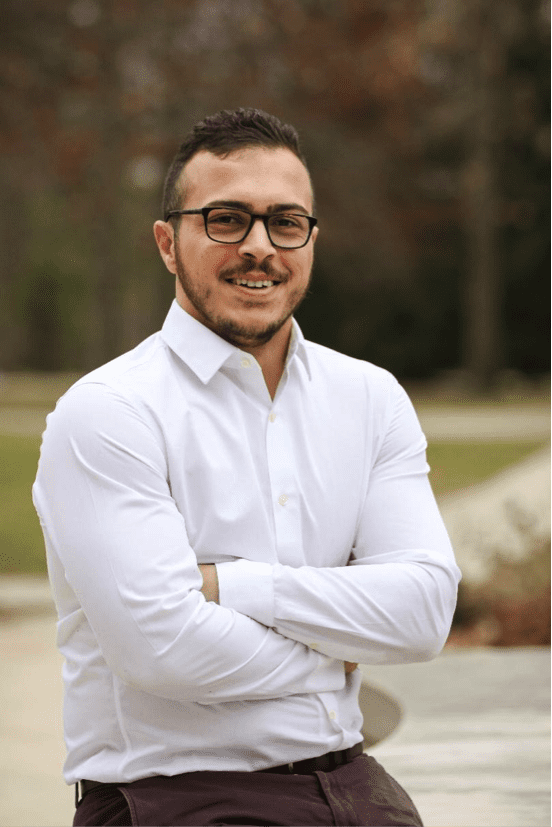
Hashem Abushama graduated from Earlham College with a BA in Peace and Global Studies. In 2015, Abushama became a Youth Representative of Palestine Refugees at the United Nations. He was appointed as a Youth Ambassador to the UNRWA@65 Conference in the United Nations Headquarters in New York. At Earlham, Abushama served as the President of the Earlham Student Body. Recently, he has been selected as one of first two Rhodes Scholars from Palestine. While at the University of Oxford, Abushama hopes to pursue his graduate studies in International Development with a particular focus on Refugee and Forced Migration Studies.
Hatem Bazian
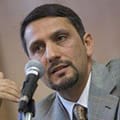
Hatem Bazian is a senior lecturer in the Departments of Near Eastern and Ethnic Studies at the University of California, Berkeley. He has taught at Berkeley’s Boalt Hall School of Law and is also a visiting Professor in Religious Studies at Saint Mary’s College of California and adviser to Berkeley’s Religion, Politics and Globalization Center as well as Academic Affairs Chair at Zaytuna College of California. He also founded Berkeley’s Center for the Study and Documentation of Islamophobia, a research unit dedicated to the systematic study of Othering Islam and Muslims. He is also Chairman of the Board of American Muslims for Palestine.
Hazem Abu Helal
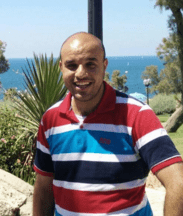
Hazem Abu Helal is a political, social and human rights activist. He holds a BA in law from the University of Jerusalem and a higher diploma in NGO Management from Birzeit University. Hazem has contributed to founding a number of Palestinian civil institutions, youth groups and campaigns involved in political and social issues in Palestine and the Arab world. He has worked with several civil institutions on youth and education issues in Palestine and as a facilitator and trainer on gender, human rights, advocacy, and life skills for youth.






